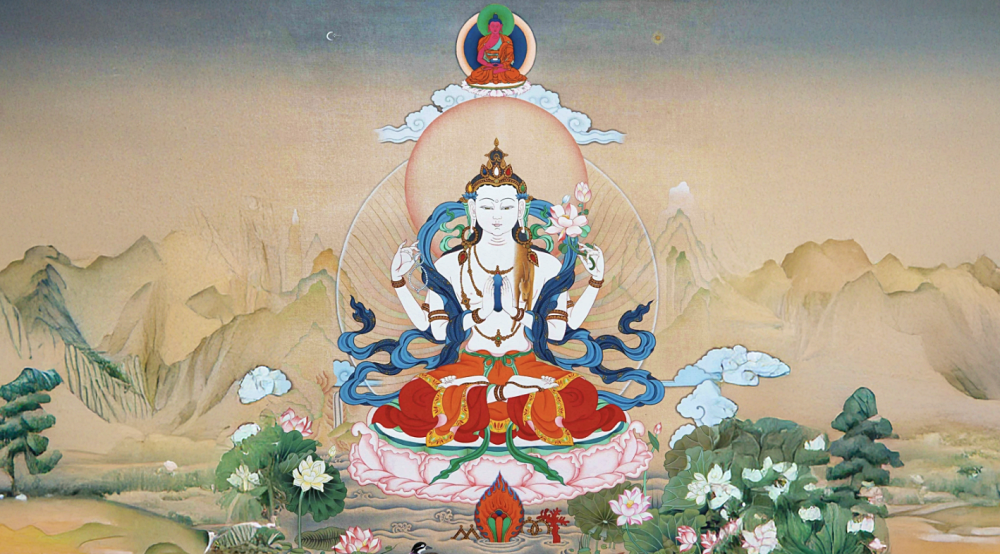Watch a video invitation from John Makransky
From a Tibetan Buddhist perspective, our buddha nature is the basic space of our being undivided from vast capacities of awareness, warmth, love, compassion, and wisdom. These capacities and qualities are always available below our surface consciousness, but often hidden by our conditioned habits of thought and reaction. One way that Tibetan practitioners start to access them is by bringing to mind the Buddha as an enlightened field of refuge, and experiencing themselves and their whole world as held in the Buddha’s unconditional love, compassion, and wisdom. Other contemplative traditions follow an analogous pattern: being held in the love, compassion, and wisdom of God, saints, prophets, or spiritual ancestors. This evokes the practitioners’ own corresponding qualities of warmth, love, compassion and openness. In Tibetan Buddhism, all such qualities are then drawn on in meditation to help the mind settle into the source of those qualities—the basic space, pure awareness, and vast capacity of our buddha nature, from which to recognize others in their deep nature and to hold them in warmth and compassion. This contemplative process also empowers our ability to discern the empty, constructed nature of our experiences, freeing the mind for further access to its innate awakening capacities.
In this online weekend retreat, we will adapt this pattern of practice from Tibetan Buddhism, with some assistance from modern psychology, to make it accessible both for Buddhist practitioners and for people of all faiths who have previous contemplative experience and seek an accessible way to cultivate unconditional love and wisdom. The weekend will include guided meditations, Q&A, and discussion.
